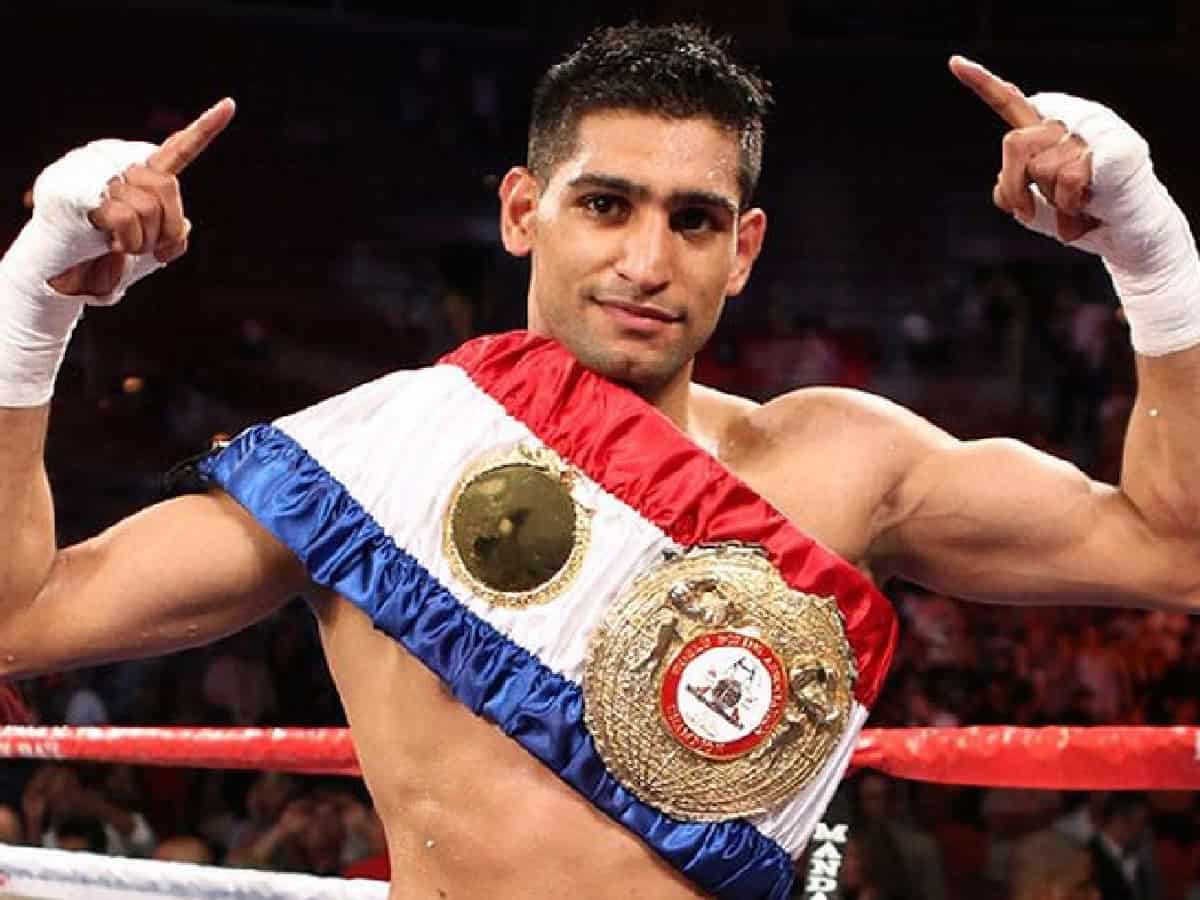
British born boxer, world champion Amir Khan whose origins are from Pakistan, announced his retirement recently and brought to an end the most successful reign by any boxer whose ancestry lies in the Indian subcontinent. His 18 year career in boxing saw him score many notable victories over the world’s best opponents in his weight class. When he was in his prime he ruled the world like a king.
He held the unified light-welterweight world championships between 2009 and 2012. He also held the Commonwealth title in the lightweight category from 2007 to 2008. When he was an amateur boxer, Khan won a silver medal in the lightweight division at the 2004 Olympic Games and became Britain’s youngest boxing Olympic medalist. He was only 17 years old then. He later became one of the youngest ever British professional world champions by winning the WBA title at the age of 22.
During the Commonwealth Games in Delhi in 2010, Amir Khan’s brother Haroon Khan, also a renowned boxer had told this correspondent about their experiences while growing up in the UK. Both the brothers were born in Bolton. “Basically our family has its roots in Matore village which is in Rawalpindi district.
Our grandfather, who had served in the army before independence, moved to the UK after he retired and that is how our family came and settled in England. When we were children, my brother and I often faced hurdles because we were of Asian stock. Some bullying and discrimination was there at all levels. But my brother Amir began to excel at boxing from a very early age. After seeing his success, I too decided to take up this sport,” said Haroon Khan.
“My brother went on to reach the top of world boxing. I too have succeeded but not as much as my brother. We always fight clean and follow the rules. European boxers sometimes try to use their head to butt you when in close contact situations. They know when their back is turned towards the referee and then they try to do such tricks. Neither of us ever did that. So I am really proud of everything that my brother has achieved. He is a boxer, not a trickster,” explained Haroon.
During the 2010 Commonwealth Games one saw an example of what Haroon was talking about. British boxer Anthony Ogogo (whose mother is British and father Nigerian) got the better of India’s star boxer Vijender Singh by tricking him into committing fouls. The Indian boxer, then ranked world number one, was clearly the superior of the two. Ogogo failed to land even a single punch. But he tricked Vijender into committing two fouls due to which Vijender’s points were deducted and Ogogo was declared winner.
But Amir Khan, having been born and brought up in the UK, learnt his boxing there and knew about the tricks that European boxers used. No doubt his early experiences helped him to climb up the rungs of the world rankings. He began to compete in boxing events from the age of 11. His first important victories were three English school titles, three junior Amateur Boxing Association titles, and a gold medal at the 2003 Junior Olympics. In 2004 he won a world junior lightweight title in South Korea. Overall his amateur record was an amazing 101 victories and only 9 losses.
In the 2004 Olympic Games he bagged the silver medal after a hard battle against Cuban boxer Mario Kindelan. Later, in another competition, he defeated Kindelan and soon after this he exited from his amateur status and became a professional. The pro circuit is a much harder affair than the amateur one. But here too Amir Khan rose from the bottom and fought his way up to the very top. In 40 bouts as a professional boxer, he won 34 and lost only 6.
Khan has set up an academy in Islamabad to train boxers. But why are Asian boxers usually not as successful as Europeans and Americans? Khan has an answer to that. He told the media recently that the Asian diet is appalling. “Chapatis and curry cannot produce champion sportsmen. If you put us against English fighters, we are at a disadvantage. From childhood their diet has more protein and less carb and fat. I changed my way of living and succeeded. Luckily I started when I was very young,” said Amir Khan.
“But it is not diet alone. We also need role models whom the youth can follow. We need to have more successful boxers to inspire those who come later,” he said. The next few years will surely provide proof of how many boxers from the Indian subcontinent are able to follow the example of Amir Khan. There is no doubt that he has cleared the path and set a new trend among boxers from this region. It is now for the youngsters to follow in his footsteps and reach the level that he has attained.



